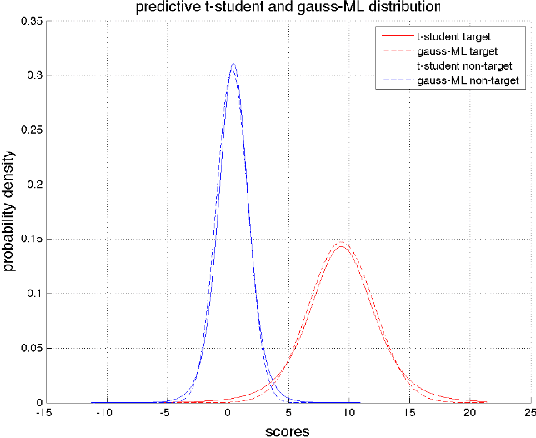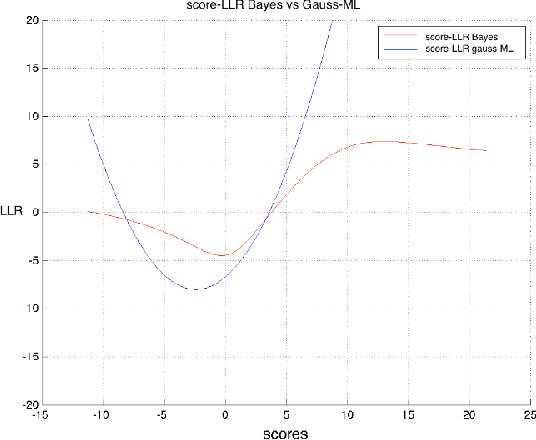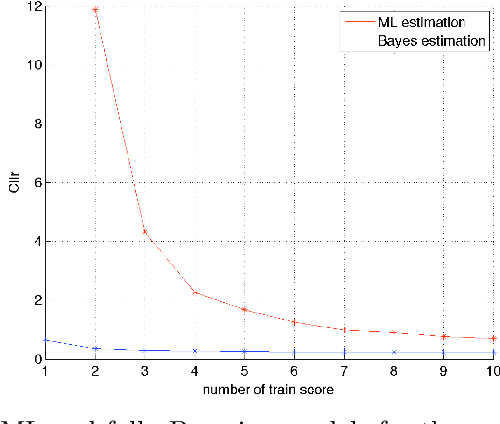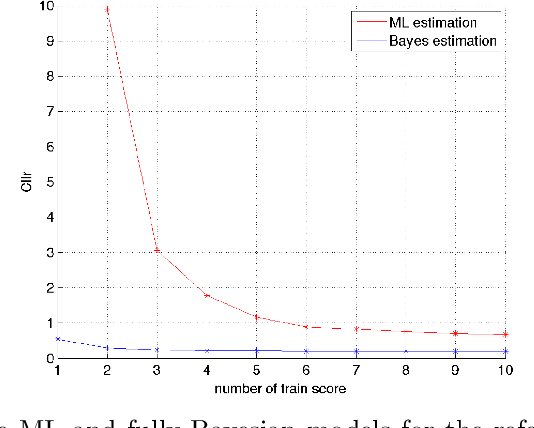Bayesian Strategies for Likelihood Ratio Computation in Forensic Voice Comparison with Automatic Systems
Paper and Code
Sep 18, 2019



This paper explores several strategies for Forensic Voice Comparison (FVC), aimed at improving the performance of the LRs when using generative Gaussian score-to-LR models. First, different anchoring strategies are proposed, with the objective of adapting the LR computation process to the case at hand, always respecting the propositions defined for the particular case. Second, a fully-Bayesian Gaussian model is used to tackle the sparsity in the training scores that is often present when the proposed anchoring strategies are used. Experiments are performed using the 2014 i-Vector challenge set-up, which presents high variability in a telephone speech context. The results show that the proposed fully-Bayesian model clearly outperforms a more common Maximum-Likelihood approach, leading to high robustness when the scores to train the model become sparse.
 Add to Chrome
Add to Chrome Add to Firefox
Add to Firefox Add to Edge
Add to Edge